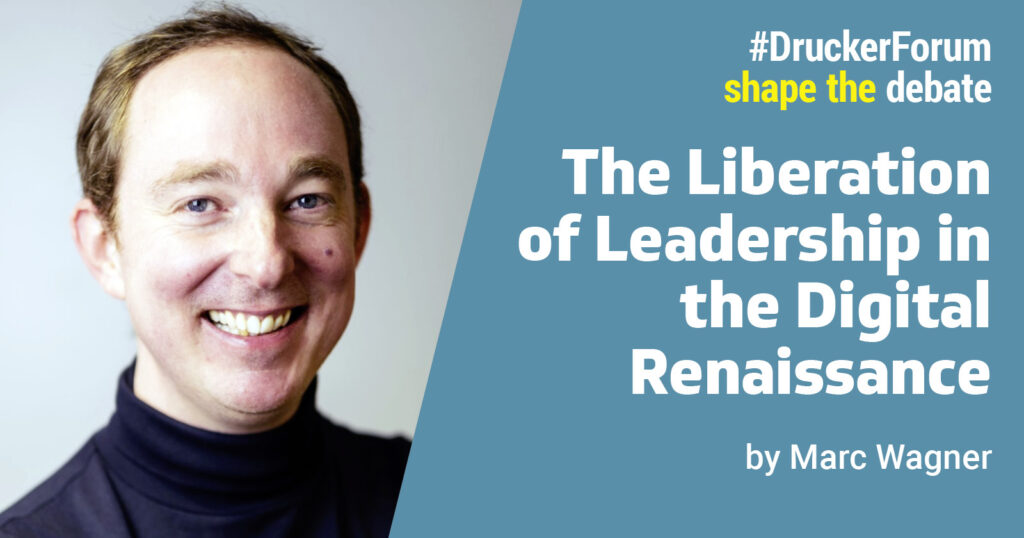
We are not living in a time of change. We are living in a change of times. What unfolds before us is a fundamental renegotiation of how organizations create value and how leadership functions within them.
The End of Traditional Management
The organizations most of us work in were designed for the industrial age—built to force people into predefined roles and control their activities. Middle management emerged as a necessary layer for reducing complexity in a world of limited communication. This historical compromise created structures that systematically suppress human potential.
Today, new technologies are exposing this arrangement as increasingly obsolete. AI completes in seconds tasks that once required entire departments. Digital platforms enable seamless collaboration across boundaries. MIT research shows that up to 65% of traditional management tasks can be performed better by intelligent systems and self-organized teams.
The bitter truth: Much of what we’ve labelled “management” has been an elaborate performance serving self-validation more than value creation. The bureaucratic “paralyzing layer” that transformed organizations into administrative zombies is losing its justification.
The Renaissance of Human Leadership
What emerges is not simply a new management style but the rebirth of an ancient idea: that human collaboration thrives on trust, not control; on potential, not limitation; on shared purpose, not hierarchical direction.
Organizations of the future resemble living organisms—highly adaptable, decentrally organized, and continuously learning. Flexible networks replace rigid hierarchies. The difference is fundamental: it’s about a different way of being in the professional world.
In this landscape, leadership becomes the decisive resource—although it is a leadership that barely resembles traditional management. It’s no longer about position and control but about recognizing, developing, and connecting potential. The data is clear: Leaders who emphasize empathy, networking ability, and systems thinking achieve measurably better results. Teams with excellent leadership:
- Achieve 27% higher profitability
- Generate disruptive innovations 3.8 times more frequently
- And respond 5.5 times faster to market changes.
The specifically human qualities—empathy, creativity, ethical judgment—become decisive competitive advantages in an age of automation. The more technology surrounds us, the more valuable the distinctly human becomes.
Human-Machine Symbiosis
The real paradigm shift lies in reimagining the relationship between humans and technology. The future isn’t human versus machine or automation versus jobs—it’s about symbiosis, hybrid teams where human and artificial intelligence amplify each other.
Research demonstrates that organizations embracing this symbiosis increase productivity faster and have higher innovation rates than those either clinging to purely human work or blindly automating. It’s not either-or but a new collaboration combining the best of both worlds.
This requires a completely new leadership understanding. Leaders must become:
- Architects of contexts permitting optimal collaboration between humans and machines
- Mediators between technological innovation and human needs
- Curators of knowledge and capability in diverse teams
- Shapers of cultures that provide meaning and orientation.
The Three Pillars of New Leadership
Three core pillars define leadership in the digital renaissance:
Human leadership puts people at the centre. It creates psychological safety as the foundation for innovation and focuses on strengths rather than deficiencies. It recognizes that every person brings unique talents, perspectives, and potential.
Trust leadership acknowledges trust as the fundamental operating system of effective collaboration. It practices transparency as an ethical obligation and relies on authenticity and integrity. It distributes authority based on competence rather than position.
Progress leadership embodies the conviction that continuous development drives sustainable success. It looks proactively toward the future, establishes genuine learning cultures, and promotes experimentation beyond established paths.
These pillars represent qualities that cannot be algorithmically replicated—the genuinely human abilities that differentiate in a world of automation.
The Renaissance of the Company Concept
This transformation marks a return to the original meaning of “company”—derived from the Latin “com panis” (with bread), referring to people who share their bread, companions in the literal sense.
This meaning was lost during industrialization when companies became impersonal machines and people “human resources.” Now we’re returning to organizations functioning as communities, connected by shared purpose and values, mutual trust, and continuous learning.
This isn’t romantic idealism but economic necessity. In a world where routine tasks are increasingly automated, the ability to unleash human potential becomes the decisive competitive advantage.
The Decision Before Us
The digital renaissance offers a historic opportunity to reinvent organizations—making them more human, intelligent, and successful. The crucial question isn’t whether this change will come, but how we shape it.
Will we allow technology to disempower us, or will we use it to humanize work? Will we cling to outdated control mechanisms, or will we develop adaptive organizational forms?
The time for incremental changes has passed. We need the courage for fundamental redesign of our working reality. Those who set the course correctly now will contribute to creating environments that finally do justice to human dignity and potential.
About the author:
Marc Wagner is a proven expert on digital transformation, employee experience & new work and was voted Top HR Influencer (Personalmagazin) and among the Top 25 New Workers (Workpath) in 2018 / 2020 / 2022 / 2024. As Senior Vice President People & Organization, he has helped to position Atruvia AG as one of the most attractive IT employers in Germany and also to establish a holistic employee experience approach. In the future, he will scale this know-how as Senior Executive Advisor in the cooperative network and, as Co-CEO, position Lucke GmbH as a digitalization and technology consultancy to bring the #CompanyRenaissance to life.

